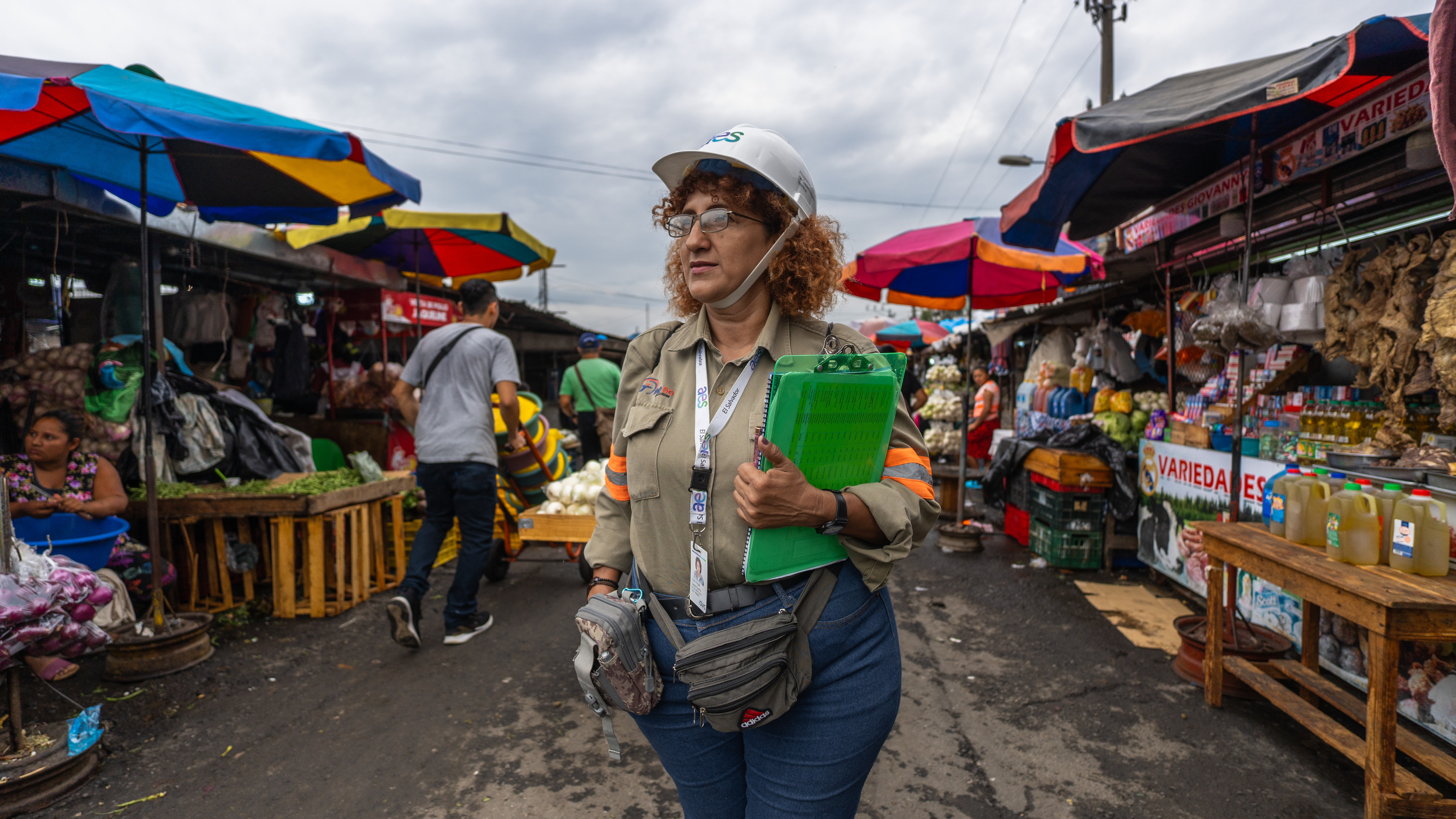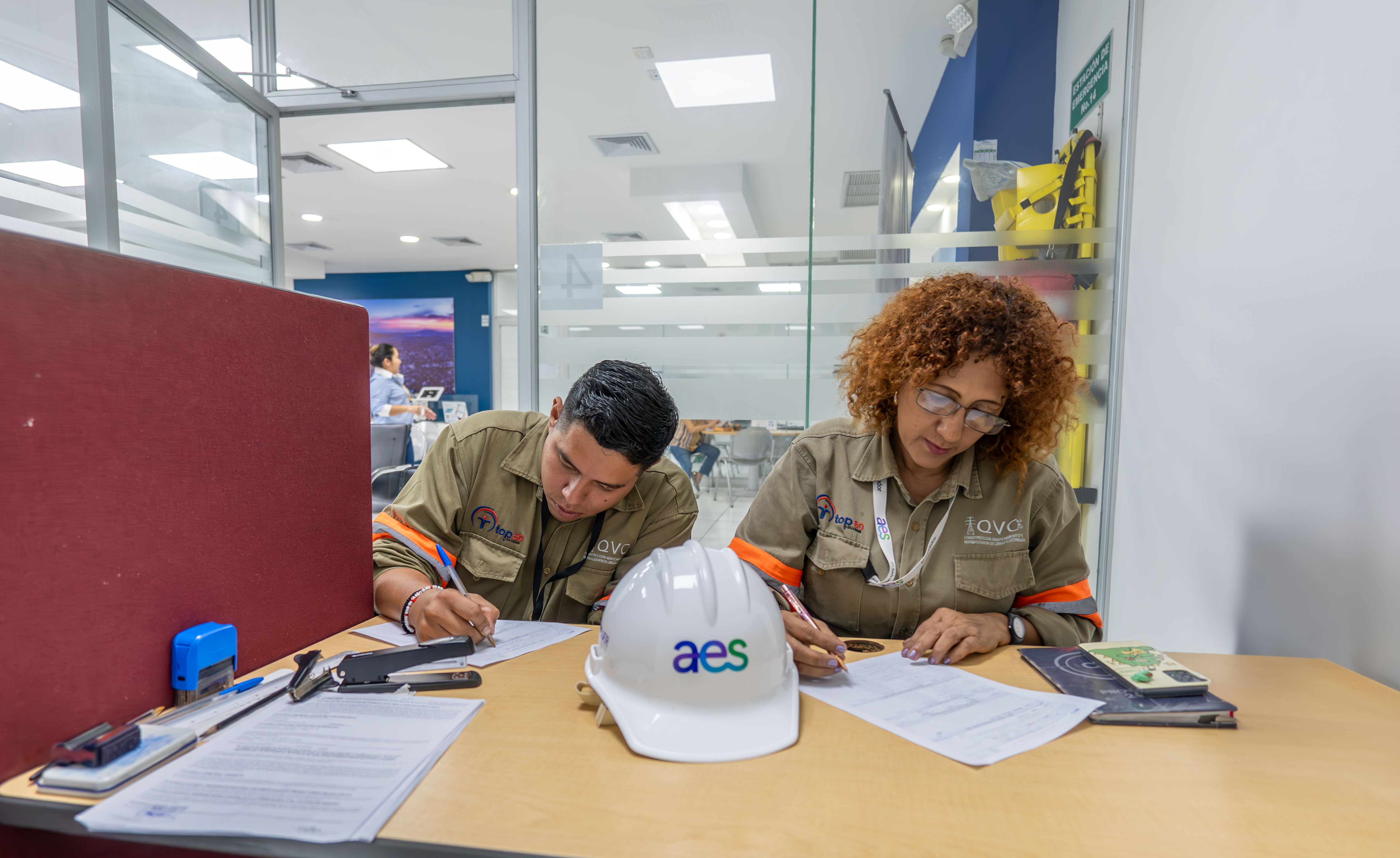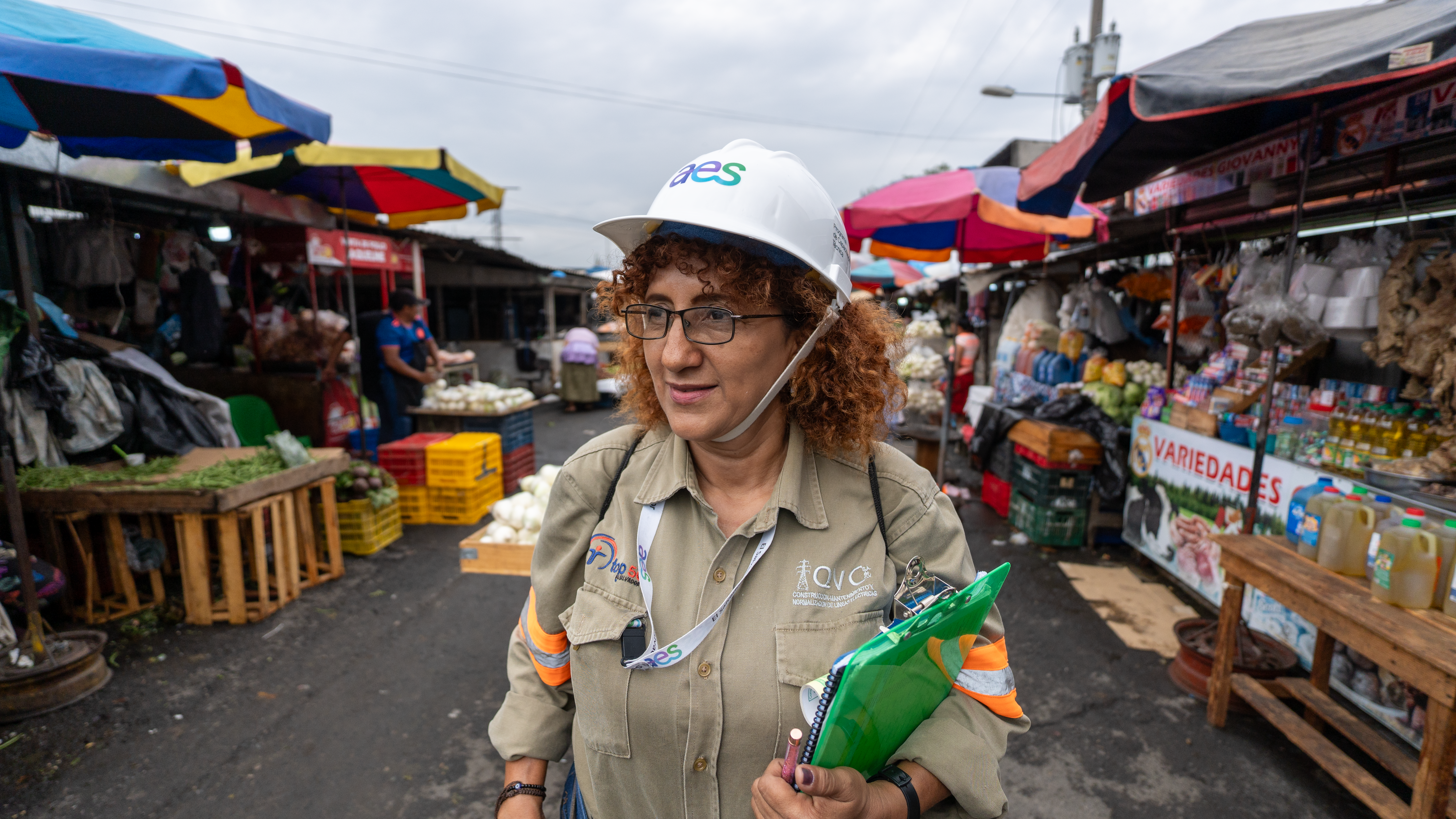With boots, helmet, and determination: Cesia Gálvez illuminates the path for women in the electrical sector
May 12, 2025
In the middle of the bustling Central Market of San Salvador, a woman with a helmet, boots, and gloves moves confidently among the stalls. It's Cesia Gálvez, an empowered woman who, at over 50 years old, defied the unwritten rules of the Salvadoran labor market and ignited a new stage in her life.

Today, Cesia works in load surveying for QVC, a contractor for AES CAESS, a job that requires technical knowledge, patience, and a lot of human interaction. And in that, her outgoing and charismatic personality becomes an asset. "I like talking to people, listening to their stories. Sometimes they tell me, 'You're the first female electrician I've seen around here!' And I smile at them. I tell them I won't be the last," she recounts with a laugh.
The unexpected turn
Let's go back to 2021. Like many women over 40, Cesia faced a difficult scenario: unemployment, few opportunities, and the uncertainty of an unstable economic future. "I was looking for work and kept running into closed doors. It wasn't a lack of ability, it was a matter of age and, sometimes, gender," she comments frankly.
It was then that she heard about the Fourth Category Residential Electrical Installation Courses, an initiative promoted by AES El Salvador and Instituto Salvadoreño para el Desarrollo de la Mujer (ISDEMU), designed to encourage female participation in traditionally male trades and promote economic and social development. Cesia didn't think twice: she signed up. "Learning electricity was like turning on a light inside me. I said to myself, 'If men can do it, so can I,'" she recalls proudly.

Breaking barriers
Cesia's story is not an isolated case, but it is uncommon in a sector still dominated by men. According to data from Ministerio de Trabajo y Previsión Social, female participation in technical trades such as electricity is less than 10%. The reasons are many: gender stigmas, lack of accessible training, and deeply rooted cultural prejudices.
However, initiatives like those of AES and ISDEMU seek to reverse this trend. "We want more women to see themselves reflected in stories like Cesia's. It is not only possible but necessary for women to actively participate in technical and strategic sectors for the country," comments Virginia Trujillo, Director of Communications and External Relations at AES El Salvador.
For Cesia, the change has not only been professional but also personal. "Today I feel useful, independent. I no longer wait for someone to give me work; I go out and look for it with my tools in hand," she affirms with conviction.
Her experience has also led her to become a kind of unofficial energy ambassador. "Sometimes other women ask me if it's difficult, if it's worth it. And I always tell them, 'The challenge is great, but the satisfaction is even greater.'"
The future of energy is female
Although there is still a long way to go, stories like Cesia's demonstrate that the employability of women in the electrical sector is not only viable but transformative. Accessible technical training and a change in paradigms are key for more women to follow in her footsteps, because, as Cesia affirms: "Electricity taught me that there is always a way to shine again, even when everything seems dark."
